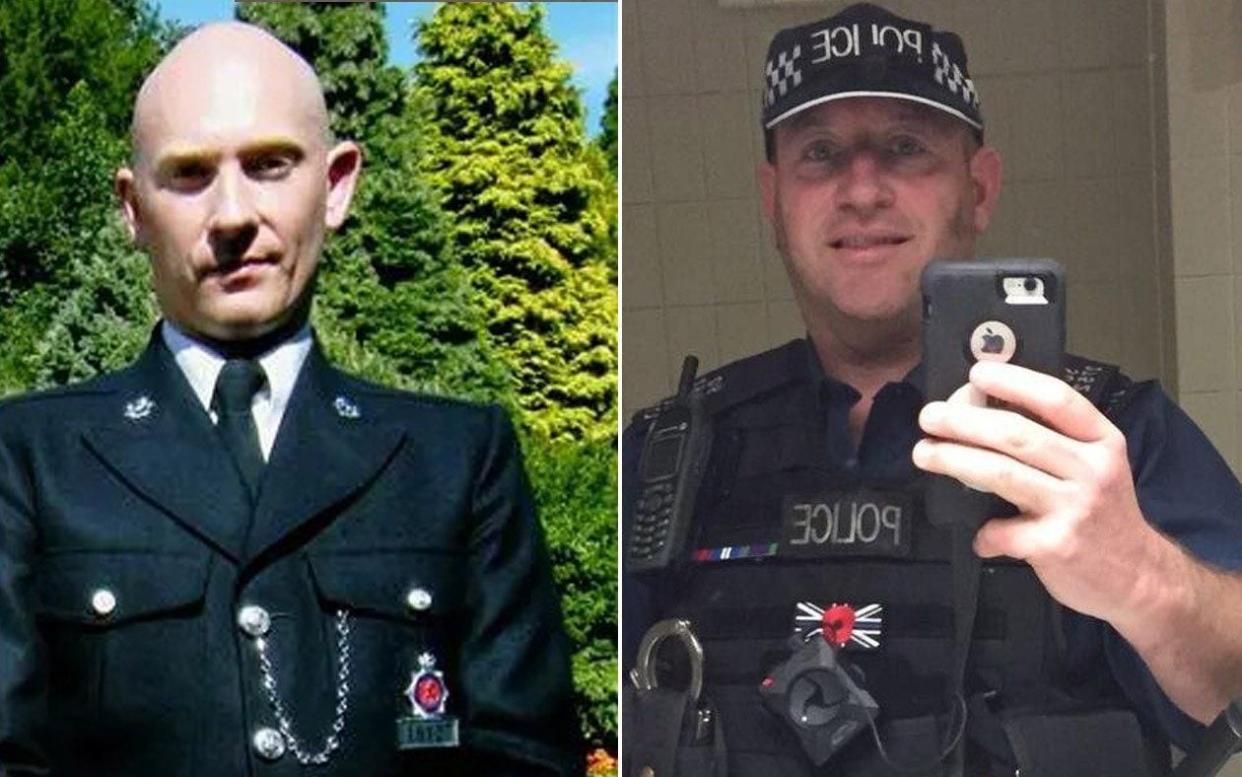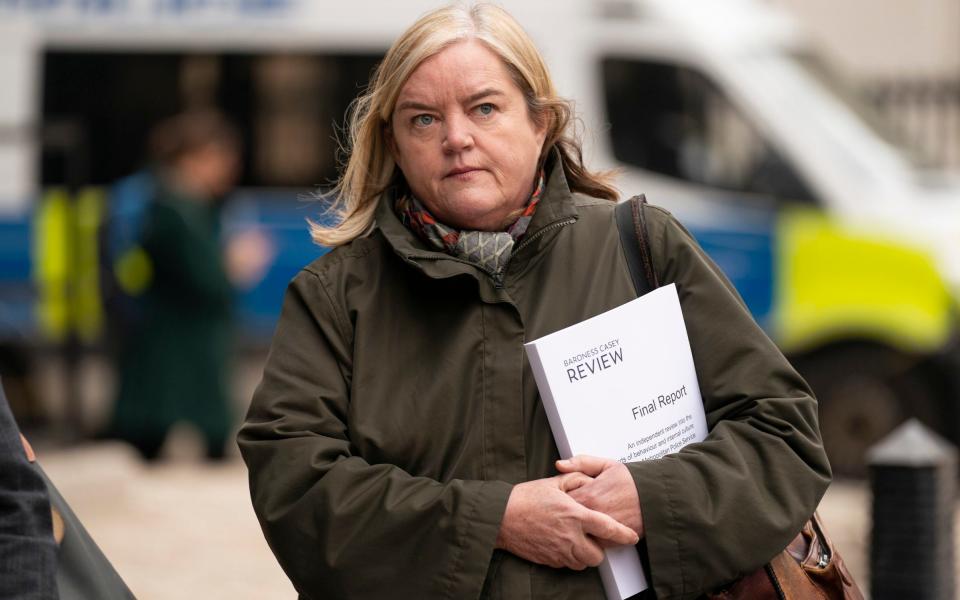Met Police is ‘institutionally racist, sexist and broken’

Scotland Yard is institutionally racist, sexist and homophobic and the public is being let down by a force that no longer has a functioning neighbourhood policing service, a damning report concludes.
In an excoriating review, which echoes the 1999 Macpherson report into the murder of the black teenager Stephen Lawrence, Baroness Casey says Britain’s biggest police force has lost the trust and confidence of the people it is supposed to keep safe.
She warns that policing by consent in the capital is “broken” and suggests a “complete overhaul” of the force is needed or else it risks having to be broken up.
Reacting to the findings, Suella Braverman, the Home Secretary said there had been “serious failures of culture and leadership” in the Met.
The report finds a concerning fall in the number of officers employed in front-line policing and reveals that almost one third of bobbies on the beat have less than two years' experience.
More than half of women in London now say they no longer trust the Met to keep women and girls safe, and one serving officer told the review that rape detection rates are so low that “you may as well say it is legal in London”.
The report finds the Met is struggling to embed good behaviour among officers, and Lady Casey says it can no longer be trusted to police itself. The review concludes that recruitment and vetting systems are poor and fail to guard against those who seek power in order to abuse it.
Lady Casey warns there could be another Wayne Couzens or David Carrick hiding in the ranks.
She concludes that – 24 years after the watershed Macpherson report – the Met remains institutionally racist, but goes further and says Britain’s biggest police force is also institutionally sexist, misogynistic and homophobic.
Lady Casey says: “Do I think that they should say they are institutionally racist? Yes, I do. Do I think they should say they are institutionally sexist? Yes, I know they are. Do I think they should say they are institutionally homophobic? Yes, I do.”
She warns the Met that it must “wake up” and take the findings seriously, saying that “the institutional defensiveness and denial in this closed order of policing really needs to change in the 21st century”.
Lady Casey also says: “The Met can now no longer presume that it has the permission of the people of London to police them. The loss of this crucial principle of policing by consent would be catastrophic. We must make sure it is not irreversible.”
Speaking ahead of the release of the report, Sir Mark Rowley, the Met Commissioner, apologised for the numerous failings and said the report sparked feelings of “anger and shame”.
But he added that while he accepted there was racism, misogyny and homophobia in the force, he would not use the term “institutional” because it was ambiguous and political.

Reacting to the report, Mrs Braverman said: “It is clear that there have been serious failures of culture and leadership in the Metropolitan Police – which is why the Commissioner, Sir Mark Rowley, has been taking action to restore confidence in policing in London.
“I will continue to hold the Commissioner to account to deliver a wholesale change in the force’s culture. There is much more to do, and the task of rooting out unfit officers means that further unacceptable cases will come to light.
“We shouldn’t, however, overlook the many officers working in the Met who carry out their duties with the utmost professionalism, and who have been let down by the failures of others.”
The 363-page report contains numerous examples of racism and misogyny perpetrated by serving officers.
Lady Casey, who was commissioned to carry out the review in the wake of the kidnap, rape and murder of Sarah Everard by Couzens, who was a serving Met officer, says the force has not done enough to root out predatory sex offenders in the ranks.
She says: “It is not our job as the public to keep ourselves safe from the police. It is the police’s job to keep us safe as the public. Far too many Londoners have now lost faith in policing to do that.”
The report also describes how the Met is failing to get the basics right, with vital evidence in rape cases sometimes lost because the fridges and freezers used to store it are dilapidated or broken.
In another case, a female officer was branded a troublemaker and liar after reporting one of her colleagues for sexually assaulting her. The report finds that violence against women and girls has not been taken as seriously as other forms of violence, and says women and children are being let down.
In one example of racism in the force, a female black officer describes how a senior officer used the N word when arresting someone.
Lady Casey concludes that the black community in London is over-policed and under-protected by the Met and more likely to be Tasered, handcuffed and stopped and searched than white residents.
And a gay officer describes how he was so frightened of his own colleagues that he would avoid walking past the police when he was off duty.
The review also finds worrying evidence of corruption and bad behaviour within the armed policing units, with officers spending taxpayers’ money on pointless equipment and bending the rules on overtime in order to boost their pay.
Lady Casey recommends that the Parliamentary and Diplomatic Protection command, where both Couzens and Carrick, a serial rapist, served, is “effectively disbanded”.
She says the misconduct system needs to be overhauled and recommends bringing in external human resources specialists and independent investigators to carry out reviews into the most serious cases.
She also says too many officers found guilty of gross misconduct got to keep their jobs, adding: “How does a serving police officer that has been done for masturbating on a train, gets a criminal conviction for it and isn’t sacked?... some of this stuff is just off the barometer.”
Lady Casey says the Met did not “effectively root out bad officers, help to tackle mediocre officers or truly support and develop good officers”.
“There are too many places for people to hide. The integrity of the organisation remains vulnerable to threat,” she warns.
The review makes 16 recommendations and says the reforms are of a “significant scale” and “on a par” with the “transformation of the Royal Ulster Constabulary to the Police Service of Northern Ireland” at the end of the last century.

